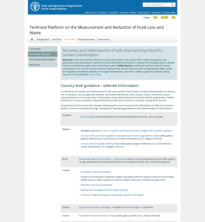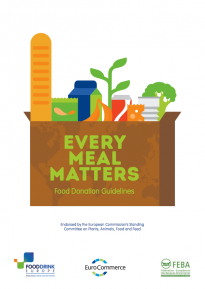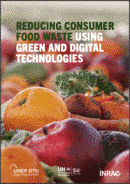Services and Infrastructure for Restaurants, Catering and Food Service
Appropriate services and infrastructure are a key component to reducing food loss and waste (FLW) in restaurants, catering, and food service.
Purchasing must correctly interpret what ingredients are required and ensure availability in time for production. Kitchen staff must prepare the food on time, keeping food costs, quality, safety and quantity in mind. Purchasing and production are part of a complete system that revolves around the menu. For larger companies, kitchen management software can save large sums of money, but for smaller or independent operators it’s often not necessary and very expensive. Purchasing software programs provide valuable information about the planning, purchasing and ordering process. They use powerful formulas, analyse historical and forecasted usage for each item: seasonal trends, market demand, and reservation lead times to provide suggested purchase orders.
The easiest form of recycling is selective waste sorting if the logistical system is in place. Some governments encourage this with subsidies and other benefits, others get no support unless it is paid for.
Get food waste collected for anaerobic digestion or composting, as an alternative to being sent to landfill. This can help save money if land fill taxes are in place.
Key Publications
Recovery and Redistribution of Safe and Nutritious Food For Human Consumption
Definitions of food recovery and redistribution are discussed, and country level guidance and examples are included. | |
Every Meal Matters Food Donation Guidelines These guidelines set out a simple framework of practical steps that can be taken to help food and drink manufacturers, retailers, and wholesalers anticipate and prepare for surplus that may arise in the business. |
More Resources
More Resources
31 October 2023













